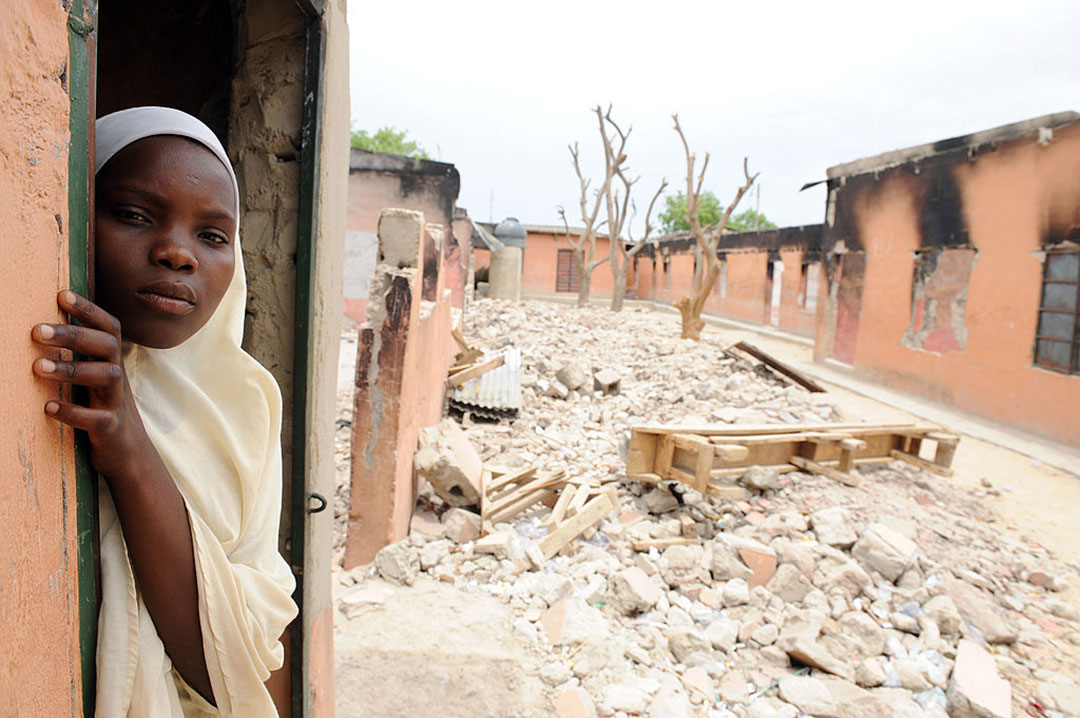Boko Haram Continues to Recruit Children
ADF STAFF
With shots ringing out in the dead of night, a group of villagers and refugees were running away from a camp for displaced people when they saw a young girl in pain on the ground.
They asked her to join them. She refused.
“Seconds after, we heard the first loud explosion,” a 32-year-old man in the group told international advocacy organization Human Rights Watch (HRW). “We believe she was the suicide bomber. She could have been 14 years old or so.”
In an attack as gruesome as it was depraved, Boko Haram fighters on August 2 swarmed the camp in Nguetechewe, a village in the Far North Region of Cameroon, killing at least 17 people, including five children and six women, and injuring at least 16.
“Boko Haram’s nighttime suicide attack in Nguetechewe appears designed to maximize civilian deaths and injuries,” said Ilaria Allegrozzi, an HRW senior Africa researcher. “Using apparent children as suicide bombers to attack displaced people is a grossly repugnant war crime.”
For more than a decade, Boko Haram has been terrorizing the Lake Chad region, operating in the borderlands of Cameroon, Chad, Niger and Nigeria. In that time, the terror group has adapted and innovated.
It shows no signs of letting up.
Forced to retreat to the forests and mountains by the region’s Multinational Joint Task Force, Boko Haram has increased the kidnapping and recruiting of children for use as fighters, suicide bombers and sex slaves.
“The recruitment of child soldiers is the latest in a retinue of brutal and inhuman tactics deployed by Boko Haram,” task force spokesman Col. Timothy Antigha of the Nigerian Army said in a press release, blaming the uptick in child recruitment on the rebels’ leadership crises, disenchantment among fighters, and recent mass surrenders and defections.
“The focus on children is because they are easier to manipulate and indoctrinate than the adults within the region.”
The practice is nothing new.
Boko Haram attained global infamy when it kidnapped 276 schoolgirls in the northeastern Nigerian town of Chibok in 2014. That inspired the use of female suicide bombers as a way to continue to spark outrage by “eliciting shock and awe from the local and international community,” according to a 2017 report from the Combating Terrorism Center at West Point.
“They worked out that girls could get more explosives through checkpoints under their hijabs,” said Bulama Bukarti, an analyst with the Tony Blair Institute for Global Change. “It has been devastating. No one expected it.”
The rise in Boko Haram’s recruitment and use of children has continued to this day.
Between January 2017 and December 2019, there were “5,741 grave violations against children” in the Lake Chad region, according to a July report by Virginia Gamba, United Nations special representative for children and armed conflict.
In that time, Boko Haram recruited and used 1,385 children — most of them abducted — in terrorist actions.
“The children of Nigeria and neighboring countries continued to endure horrendous violations by Boko Haram,” she said. “The expansion of the group’s activities across the Lake Chad Basin region is a serious concern for the Secretary-General.”


Comments are closed.